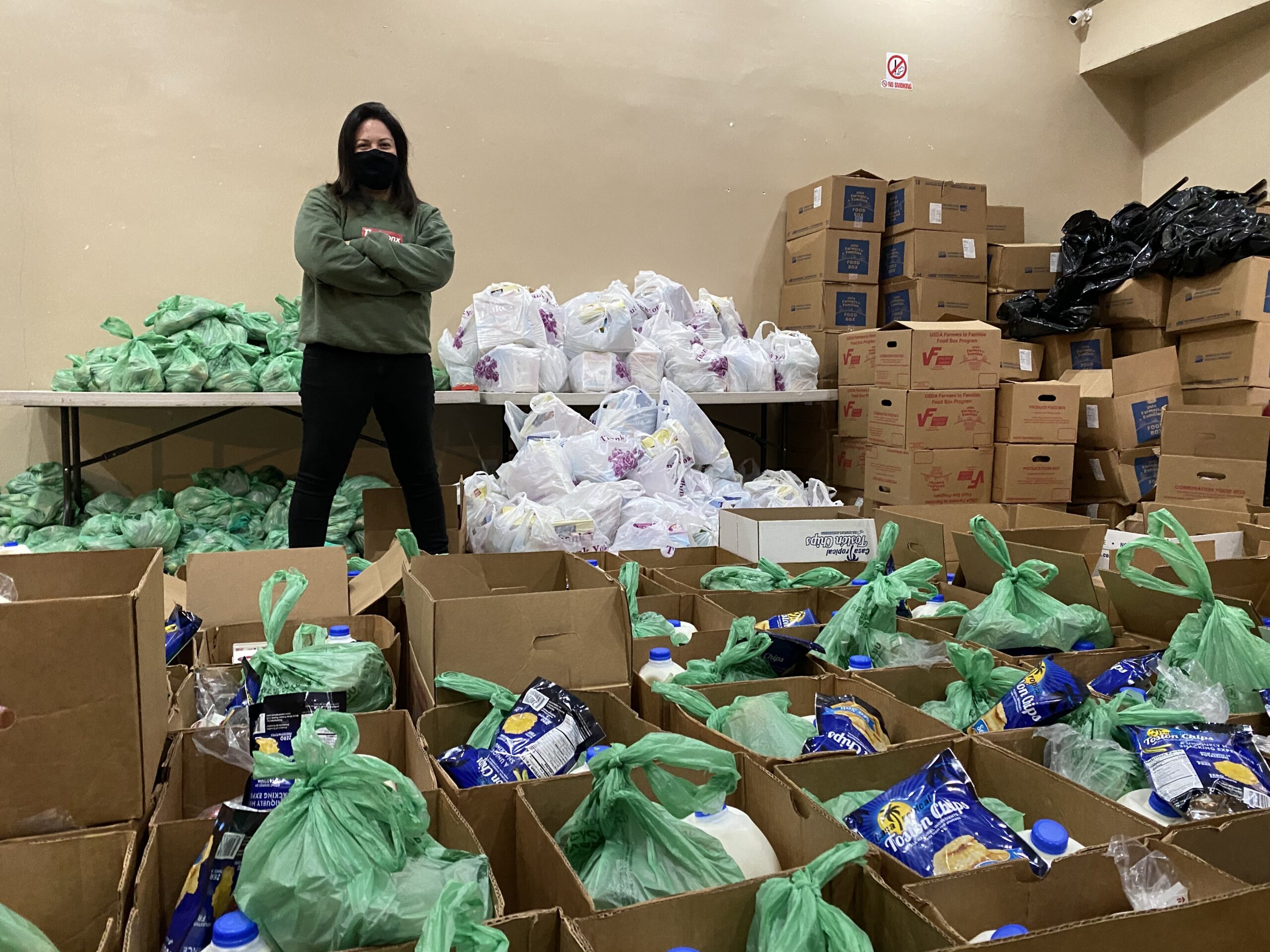A previous Teach for America fellow, Ariadna Phillips has been an educator in the Bronx for several years. In March, Phillips began to notice that several of her students were coming to school hungry and unable to focus during their virtual classes.
Within a few weeks, Philips, age 39, founded South Bronx Mutual Aid, a grassroots group that provides direct assistance to families in need in Mott Haven and Port Morris.
“There’s a human dignity issue that pushes us all to this work. When you watch the pandemic rip off whatever illusion we had of stability, especially in communities like where I teach- that’s exactly why I do this. I just watched the bottom fall out for all of my students and their families,” said Phillips.
Without meals and access to other resources, Phillips noticed that students were easily distracted, falling behind in their assignments, or not showing up to class at all. She began to organize regular food deliveries to her students and their families, many of whom she had also taught at some point, and rallied community members to donate additional resources through the group’s social media account.
“In the South Bronx, we’ve come up with our own systems of mutualized support to take care of each other, whether with food or with childcare. If it’s about ‘us’ and not just me and my needs, then we contribute to each other and we help each other – and that’s effectively mutual aid,” said Phillips.
Phillips’ concept of mutual aid is influenced by the mutualidades and mutualistas of Mexico, her mother’s native country. These informal benefits societies, which operate similarly to mutual aid groups in America, have existed for centuries and operate autonomously outside of government systems.
Sustaining a mutual aid group solely based on donations and goodwill at the height of a pandemic, brings a host of challenges for Phillips and her team.
“There is a continuous need for volunteers and donations, but one of our biggest challenges is space to hold perishable food,” said Dave Arvelo, a leader who works with Phillips to pick up and distribute donations.
The group relies on the generosity of business owners and nonprofits who allow them to install community fridges near their storefront. The community fridges store prepared and perishable foods for residents to freely access. These partnerships with local businesses take time to develop and, in Phillip’s experience, owners are reluctant to make any long-term commitments to house the fridges.
Another challenge has been mobilizing volunteers to pick up last minute food donations. According to Phillips, much of the food that is made available to her group is sourced out of Brooklyn and Queens and is often distributed on a first-come-first-served basis. This requires volunteers, with reliable cars, to be ready to travel at short notice.
“We also have to consider the time it takes to transport and deliver the meals to families. When we go to Brooklyn to pick up hundreds of prepared meals that need to be distributed to families within a few hours so that they don’t spoil, it’s literally a race against the clock. It’s been a challenge,” said Phillips.
The group is part of a network of other similar organizations that refer families to one another, share resources, and host joint events throughout the Bronx. This year, the collaborative has worked together for food giveaways, to disseminate COVID-19 information, and host voter registration events.

